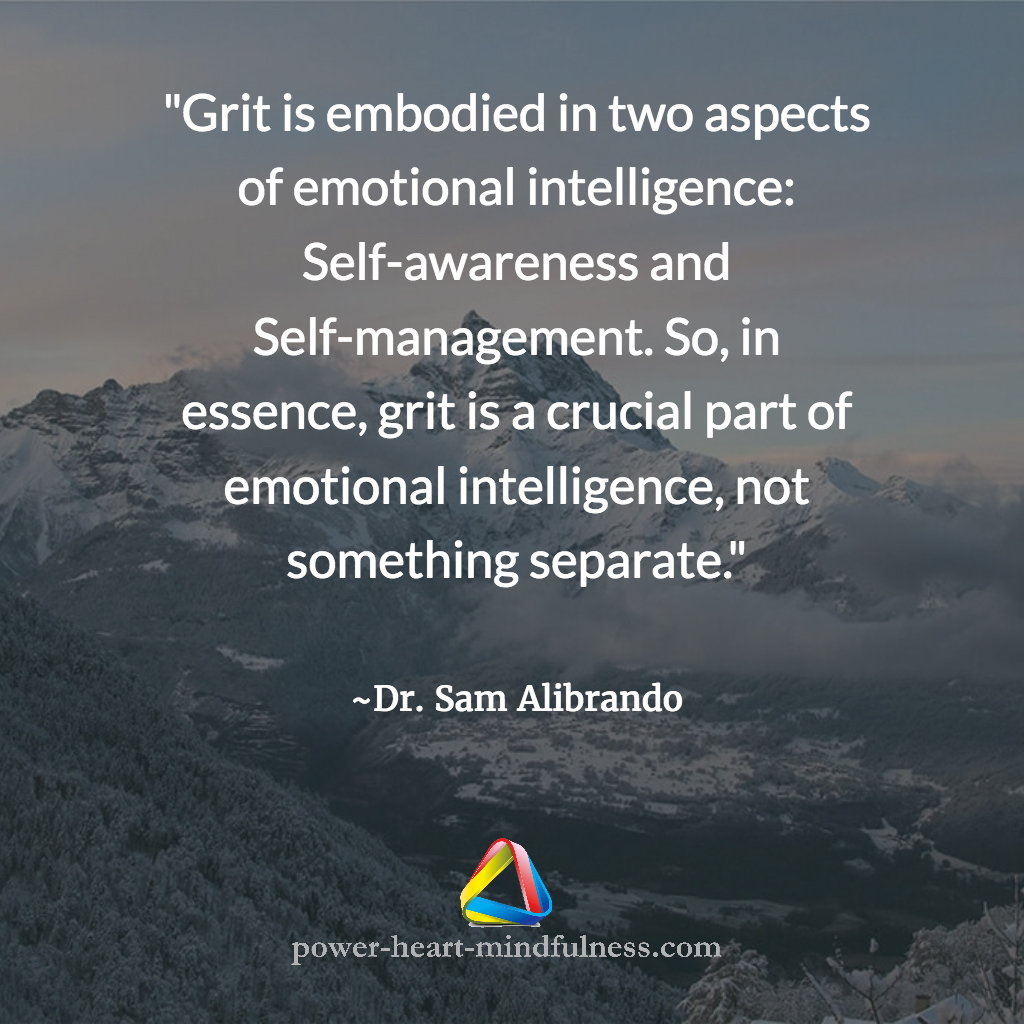In her TED talk titled Why Some Students Fail and Other Students Succeed, teacher turned psychologist Angela Lee Duckworth reveals the one factor that determines whether a student will succeed or fail. She suggests that, in general, IQ has been the easiest factor to measure to predict success. And while other factors such as social intelligence, good looks, socio-economic status, physical health and talent are also considered in predicting success, her conclusion from the research suggests that the one factor that stands out more than any other factor is what we call “grit.” But what is grit?
Duckworth and her colleagues define grit as “perseverance and passion for long-term goals.” As she says, grit is a marathon not a sprint. Words like perseverance, effort, and resilience are often associated with grit. It describes an individual who will doggedly overcome obstacles and challenges while working toward the achievement of a goal. And grit predicts success independent of other factors such as IQ, talent, gender and socio-economic factors.
In her talk, Duckworth puts grit up against “social intelligence.” Now there are massive amounts of research that would strongly suggest the importance of a quality called “emotional intelligence” in success, but she seems to suggest that grit is a more robust predictor of success.
I (kind of) disagree. And here is why:
I would suggest that “grit” is actually a sub-factor of emotional intelligence, not an independent factor. Please note that in her talk, Duckworth contrasts grit to “social intelligence.” But social intelligence is only one aspect of emotional intelligence. Psychologist Daniel Goleman distills emotional intelligence into four categories: Other-awareness, Other-management, Self-awareness, and Self-management. Arguably, social intelligence includes Goleman’s first two factors—Other-awareness and Other-management. I would argue that grit is embodied in the latter two of Goleman’s factors: Self-awareness and Self-management. So, in essence, grit is a crucial part of emotional intelligence, not something separate.
In my model, I break EI down into thirds (or sixths): Power, Knowing (or Mindfulness) and Heart (and any of the three possible blends of these). In my model, grit finds itself in the space that can be described as a dynamic balance of Power together with Knowing. In the case of someone with grit, we would have an individual with a clear and realistic vision (Knowing) with the guts and determination (aka grit) to persevere and push them to achieve and accomplish their vision (Power) and back again to Knowing—course correcting along the way as necessary.
Duckworth suggests that anyone can learn to be “gritty.” To the degree that this is true, we all can learn to be more emotionally intelligent. And to that degree, we will more likely be successful in what we want to accomplish whether we are juniors in high school or the SVP of a Fortune 500 corporation.
It seems that people can become successful apparently without as much in the social-awareness space, However, I would question whether anyone can remain successful over the long term if they are unable to get along with people and utilize skills like empathy, listening, collaboration and compromise. I would argue that grit will get you to the top, but finding the dynamic balance of Power, Knowing—along with the third dimension (Heart) will keep you there.
